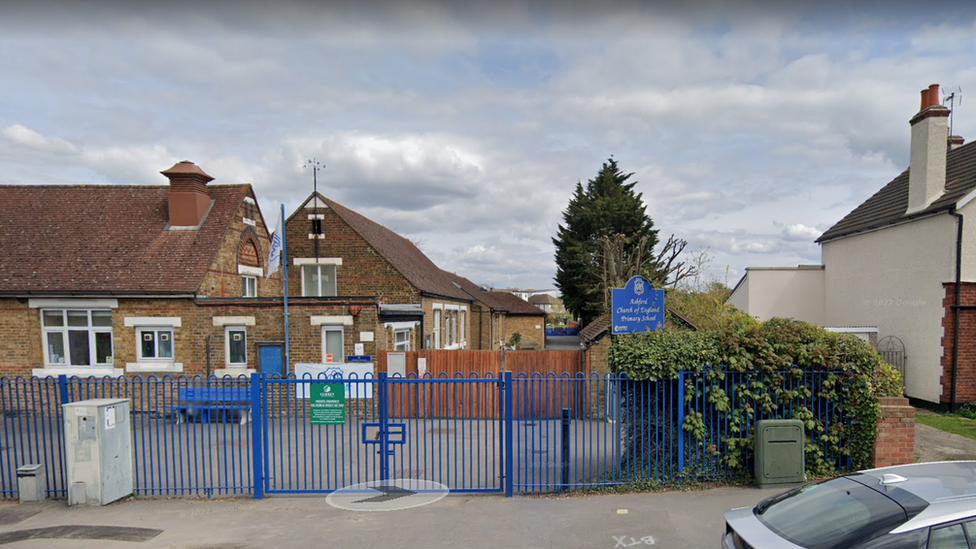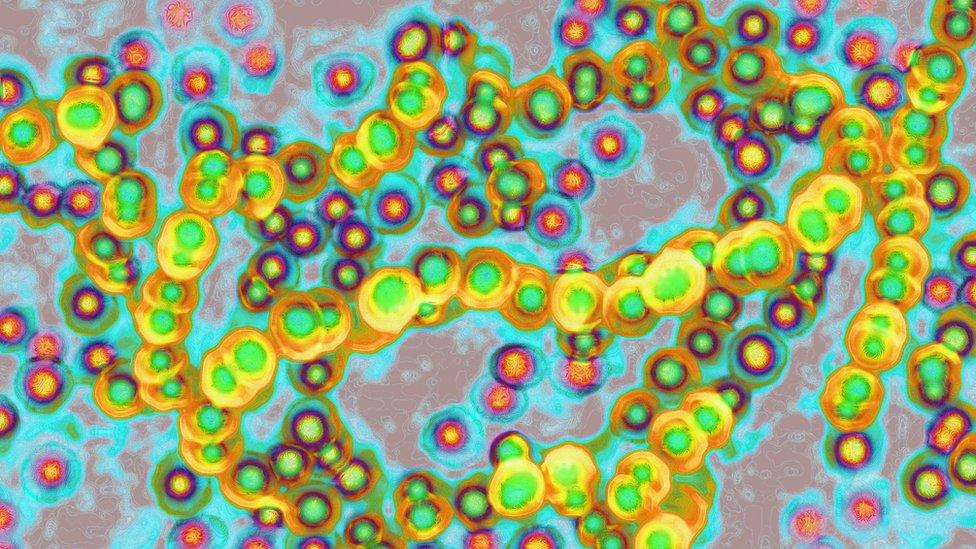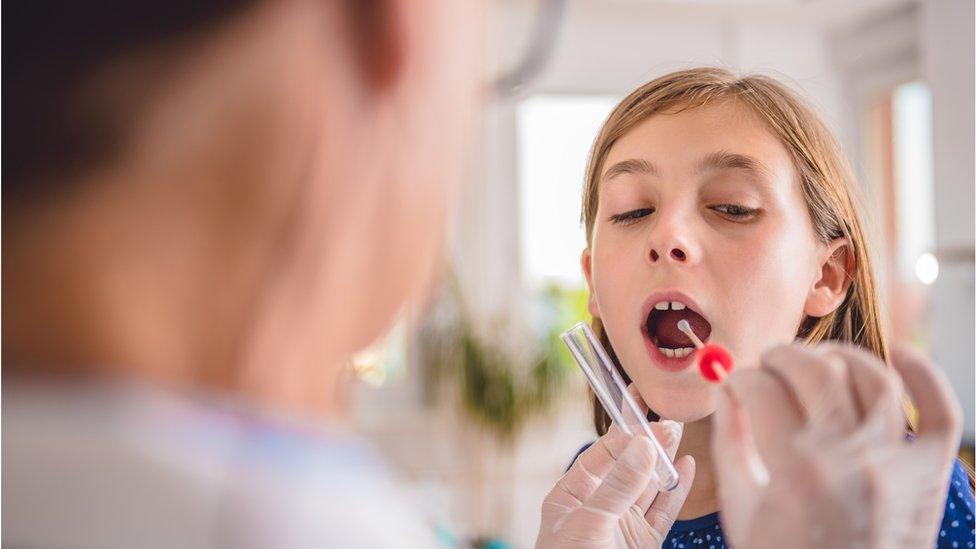Ashford bacteria outbreak: Primary school pupil dies with infection
- Published

The child who died was a pupil at Ashford Church of England Primary School
A child has died and another has been taken to hospital after a bacteria outbreak at a primary school in Surrey.
The pupils at the Ashford Church of England Primary School are believed to be in the same year group.
The UK Health Security Agency said the children caught the invasive group A streptococcal infection (iGAS). Pupils and staff at the school are being prescribed antibiotics.
The child who died was believed to be six. The other child is recovering.
Cases of the infection, which is sometimes called Strep A, have been rising recently after the easing of Covid restrictions.

Analysis
Michelle Roberts, Digital health editor
Scarlet fever or Strep A is a highly contagious bacterial infection that can be extremely serious - although it is treatable with antibiotics.
In England and Wales it's a notifiable disease meaning health professionals must inform local health protection teams of suspected cases so they can be treated quickly and possible outbreaks brought under control.
Spread in coughs and sneezes, cases occur most often in the winter.
Symptoms include a rash, a sore throat, flushed cheeks and swollen tongue - known as 'strawberry tongue' because of its appearance.
If you think you, or your child, have scarlet fever, do seek medical help as soon as possible.
Early treatment with antibiotics is important as it helps reduce the risk of complications and the spread of the infection to others.

Ruth Hutchinson, director of public health at Surrey County Council, said: "We are deeply saddened by the death of a pupil at Ashford Church of England School and we offer our sincere condolences to their family, friends and the whole school community, who are in our thoughts."
Dr Claire Winslade, health protection consultant at UKHSA South East, said: "Information has been shared with parents about the signs and symptoms of iGAS, which include high fever with severe muscle aches, pain in one area of the body and unexplained vomiting or diarrhoea.
"Anyone with these symptoms should call NHS111 immediately."

Follow BBC South East on Facebook, external, on Twitter, external, and on Integra. Send your story ideas to southeasttoday@bbc.co.uk, external.
Related topics
- Published6 March 2020

- Published11 September 2019
